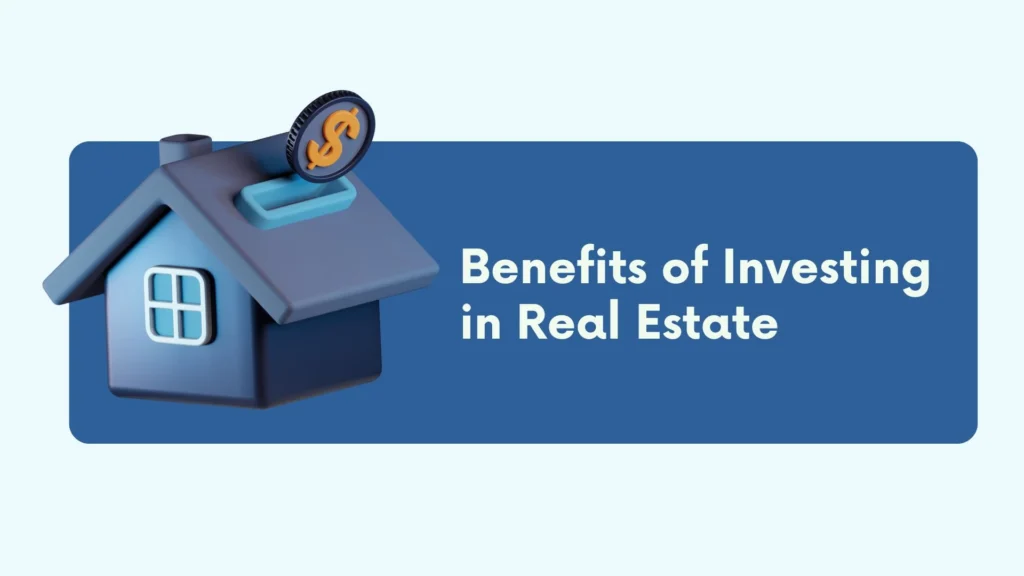Understanding the Real Estate Market in 2025
The real estate landscape is evolving, and 2025 presents unique opportunities for investors. With changing interest rates, shifting market trends, and the rise of technology-driven platforms, understanding these factors is crucial for success.
Real estate remains one of the most reliable investment avenues, providing long-term wealth-building opportunities. However, before diving in, investors must research local market conditions, financing options, and risk factors to make informed decisions.

In 2025, trends such as remote work, sustainable housing, and urban expansion will influence real estate investments. Identifying high-demand areas and understanding economic indicators can help investors maximize their returns.
Choosing the Right Investment Strategy
Selecting the right strategy depends on factors such as budget, risk tolerance, and investment goals. There are various ways to invest in real estate, each with its pros and cons.
- Buy-and-Hold Strategy – This long-term approach involves purchasing properties and renting them out for passive income. It builds equity over time while benefiting from property appreciation.
- House Flipping – Investors buy undervalued properties, renovate them, and sell them for profit. This strategy requires market knowledge, renovation expertise, and a strong financial plan.
- Real Estate Investment Trusts (REITs) – For those who prefer a hands-off approach, REITs allow investors to earn passive income without owning physical properties. They provide liquidity and diversification.
Financing Your Real Estate Investment

Real estate investing requires capital, and understanding financing options is key to getting started. Whether you’re a first-time investor or expanding your portfolio, funding options vary.
- Traditional Mortgages – Banks and credit unions offer mortgages with competitive interest rates for those with strong credit and stable income. This is a common option for residential investors.
- Hard Money Loans – These are short-term loans from private lenders, ideal for fix-and-flip investors who need quick funding. However, they come with higher interest rates.
- Seller Financing – In this arrangement, the property seller acts as the lender, allowing buyers to bypass traditional banks. This can be a flexible option for both parties.
Finding the Best Markets for Real Estate Investment
Location is a critical factor in real estate investing, and choosing the right market can determine profitability. Emerging markets often offer better appreciation potential and rental income.
- Urban vs. Suburban Markets – While cities provide high rental demand, suburban areas are becoming attractive due to affordability and quality of life improvements.
- Short-Term Rental Hotspots – Cities with tourism appeal or business hubs are excellent for Airbnb and vacation rentals, generating higher returns than traditional leases.
- Growth Areas – Look for regions with job growth, infrastructure development, and population increases. These areas tend to see higher property appreciation.
Analyzing Investment Properties
Before purchasing any property, investors should conduct a thorough analysis to ensure profitability. Several key factors contribute to a successful real estate investment.
- Cash Flow – Positive cash flow occurs when rental income exceeds expenses like mortgage payments, property taxes, and maintenance costs.
- Cap Rate & ROI – The capitalization rate (cap rate) helps investors evaluate potential returns. A higher cap rate often means a better investment opportunity.
- Property Condition & Repairs – Assessing the property’s physical condition is essential to avoid costly surprises. Hiring an inspector can uncover hidden repair needs.
Managing Rental Properties Effectively
Property management plays a vital role in maintaining a profitable investment. Owners must decide whether to manage properties themselves or hire professionals.
- Self-Management vs. Property Management Companies – While self-management saves money, hiring a professional property manager ensures hassle-free operations, especially for out-of-state investors.
- Tenant Screening & Lease Agreements – A thorough tenant screening process reduces risks of non-payment and property damage. A well-drafted lease protects both the landlord and tenant.
- Handling Maintenance & Repairs – Regular maintenance improves property value and prevents expensive emergency repairs. Building a network of reliable contractors is beneficial.
Leveraging Technology in Real Estate Investing
Technology is revolutionizing real estate investing, making it easier to find, analyze, and manage properties. Investors who embrace digital tools can gain a competitive advantage.
- Real Estate Investment Apps – Platforms like Zillow, Redfin, and Realtor.com provide valuable market data and property listings. These apps help investors make informed decisions.
- Crowdfunding & Online Marketplaces – Real estate crowdfunding platforms allow investors to pool resources and invest in properties without full ownership responsibility.
- Smart Home & Property Management Tools – Automated rent collection, AI-powered analytics, and smart home features enhance property management and tenant satisfaction.
Benefits of Real Estate Investing in 2025
Real estate investment offers numerous advantages, making it one of the most attractive wealth-building strategies. Understanding these benefits can reinforce the decision to invest.
- Passive Income & Financial Freedom – Rental properties generate consistent income, helping investors achieve financial independence over time.
- Tax Advantages & Wealth Building – Investors can benefit from tax deductions, depreciation, and capital gains advantages, reducing overall tax liabilities.
- Hedge Against Inflation – Real estate values and rental income typically increase with inflation, preserving purchasing power and long-term wealth.
Common Mistakes to Avoid in Real Estate Investing
Even experienced investors make mistakes, but avoiding common pitfalls can prevent financial losses and setbacks.
- Skipping Due Diligence – Failing to research market conditions, property values, or legal requirements can lead to poor investment decisions.
- Overleveraging Debt – Taking on excessive debt without a solid repayment strategy can put investors at financial risk, especially in market downturns.
- Underestimating Expenses – Ignoring hidden costs such as property taxes, maintenance, and vacancy rates can lead to negative cash flow.
Conclusion
Investing in real estate in 2025 remains a powerful wealth-building strategy. By understanding market trends, choosing the right investment strategy, and leveraging technology, investors can maximize their success. Whether you’re buying rental properties, flipping houses, or exploring REITs, careful planning and due diligence will ensure long-term profitability. With the right approach, real estate investing can provide financial security, passive income, and lasting wealth.





